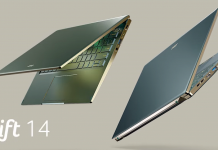Last updated on May 1st, 2023 at 08:00 pm
Intel’s 7nm problems are paving the way for China to lead the way in supercomputers. And it makes the American military nervous
According to a report from The New York Times, the delay in Intel’s 7nm transition is preventing the company from supplying experimental chips to build the world’s most powerful supercomputer.
Don’t forget to leave us a comment below and let us know what you think!
Share Our Website for Technology News , Health News , Latest Smartphones , Mobiles , Games , LifeStyle , USA News & Much more...




